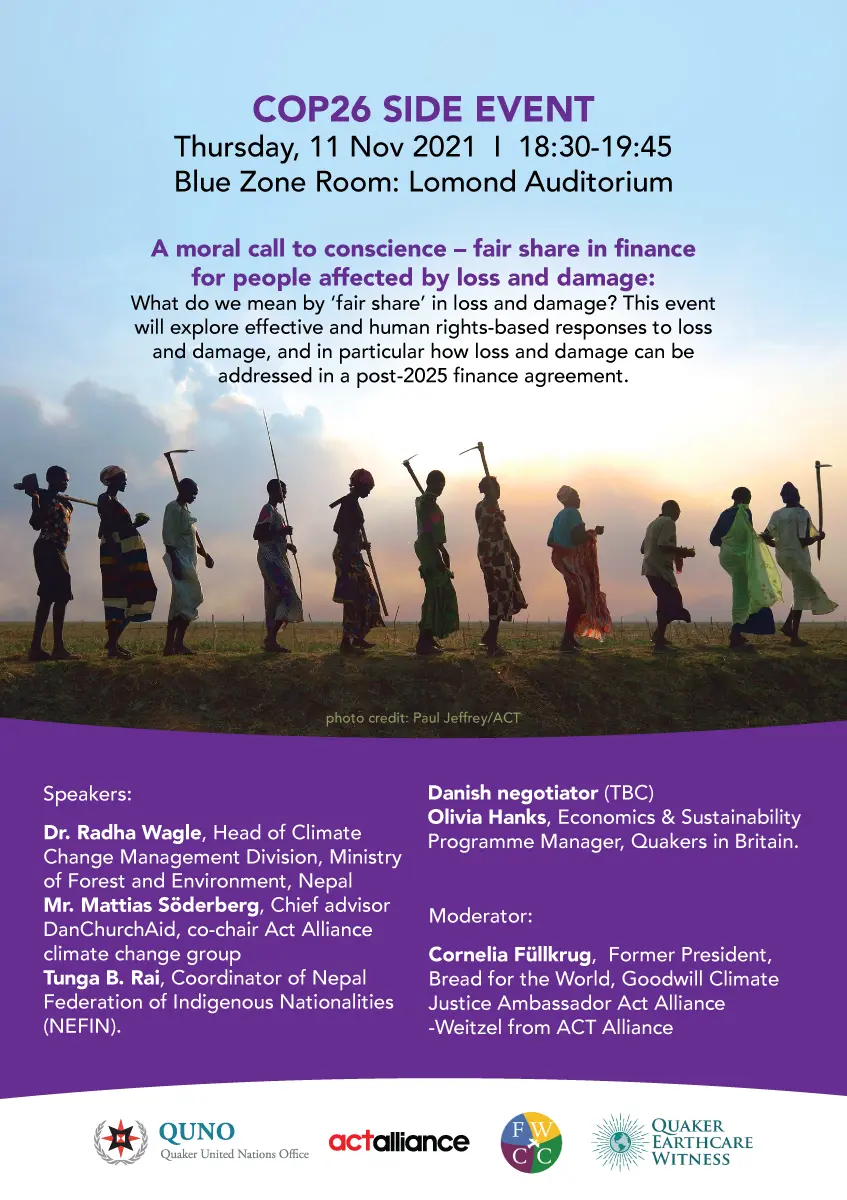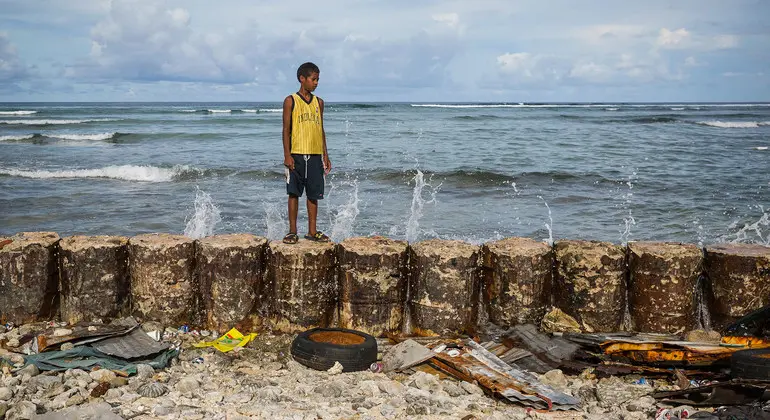Organiser: ACT Alliance – Action by Churches Together (ACT Alliance), Friends World Committee for Consultation, Quaker Earthcare Witness (QEW)
Speaker: – Dr. Radha Wagle, Ministry of Forest and Environment, Nepal – Mr. Mattias Söderberg – DanChurchAid – A Negotiator – Denmark – Tunga B. Rai – Nepal Federation of Indigenous Nationalities – Olivia Hanks -Quakers in Britain – Dr. Cornelia Füllkrug-Weitzel (moderator) – ACT Alliance

The UN climate talks in Glasgow are reaching a crucial point, with negotiations due to finish on Friday (though they may run on into the weekend). We have seen an incredible coming together of movements in Glasgow and around the world to call for climate justice at COP26.
Yet inside the official venue, the talks are less transparent and less inclusive than they have been for many years. Halfway through the second week, the horse-trading and game-playing is underway, and we’re already seeing worrying attempts to water down language on human rights.
Governments now need to move from headline-grabbing promises to concrete commitments that kick in immediately. And crucially, the richest countries need to do their fair share.
A final outcome document will be published at the end of COP26. A draft was published this morning, with many gaps still to fill over the next two days. Here are four things the outcome needs to include to set us on a path to a just and liveable future:
1. Set up a loss and damage fund
COP26 needs to set up a loss and damage fund, with genuinely new and additional finance from richer countries to help pay for the damage caused by climate breakdown. The countries most vulnerable to climate change have been calling for this since 1991 – and as climate impacts worsen around the world, there must be no further delay.
We’ve heard much more talk of loss and damage at this COP than in the past, thanks to pressure from civil society – including Quakers and other faith groups. However, we’re still not seeing concrete commitments. The draft outcome refers to the need for action on loss and damage, but with no specifics yet. We need to see a political decision to provide finance, and a commitment to include loss and damage as a standing item on all future COP agendas.
2. Meet climate finance targets based on need
Developed countries must meet their commitments to provide climate finance. In 2009, developed countries pledged to find $100 billion per year by 2020 to support developing countries with climate mitigation and adaptation. This target has been missed, and has now been extended to 2023. This is a disastrous abdication of responsibility by the world’s richest countries – especially when the scale of need is so much greater now than 12 years ago.
Much of the finance that has been pledged towards the $100bn target so far has been in the form of interest-bearing loans rather than grants – creating a flow of money from poor to rich. A successful COP26 would see the $100 billion target met with grants and not loans. We also need to see progress towards a new target based on need and including finance for loss and damage as well as mitigation and adaptation.
Source
Image Source
Tags: A moral call to conscience – fair share in finance for people affected by loss and damage


